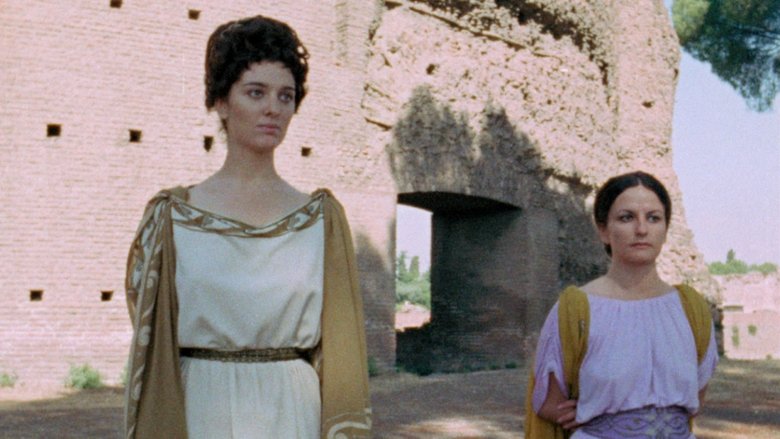Ko ta maatau whare pikitia me to wharepukapuka whakaataata ka taea noa te rere, te tango mai ranei ma nga mema anake
Me matakitaki tonu mo te FREE ➞He iti ake te waa 1 meneti ki te Haina Mai ka pai ai ki a koe te koa ki nga Kiriata Mutunga & Taitara TV.

Les yeux ne veulent pas en tout temps se fermer, ou Peut-être qu'un jour Rome se permettra de choisir à son tour (1971)
Straub-Huillet’s first color film, adapts a lesser-known Corneille tragedy from 1664, which in turn was based on an episode of imperial court intrigue chronicled in Tacitus’s Histories. The costuming is classical, and the toga-clad, nonprofessional cast performs the drama’s original French text amid the ruins of Rome’s Palatine Hill while the noise of contemporary urban life hums in the background. Their lines are executed with a terrific flatness and frequently through heavy accents; the language in Othon becomes not merely an expression but a thing itself, an element whose plainness here alerts us to qualities of the work that might otherwise be subordinated.
Momo: Drama
Maka: Adriano Aprà, Anne Brumagne, Ennio Lauricella, Olimpia Carlisi, Anthony Pensabene, Jean-Marie Straub
Kaimahi: Danièle Huillet (Director), Jean-Marie Straub (Director), Pierre Corneille (Theatre Play), Klaus Hellwig (Producer), Jean-Marie Straub (Screenplay), Danièle Huillet (Screenplay)
Subtitle:
![]()
![]()
![]()
![]()
![]()
![]()
![]() ETC.
ETC.

